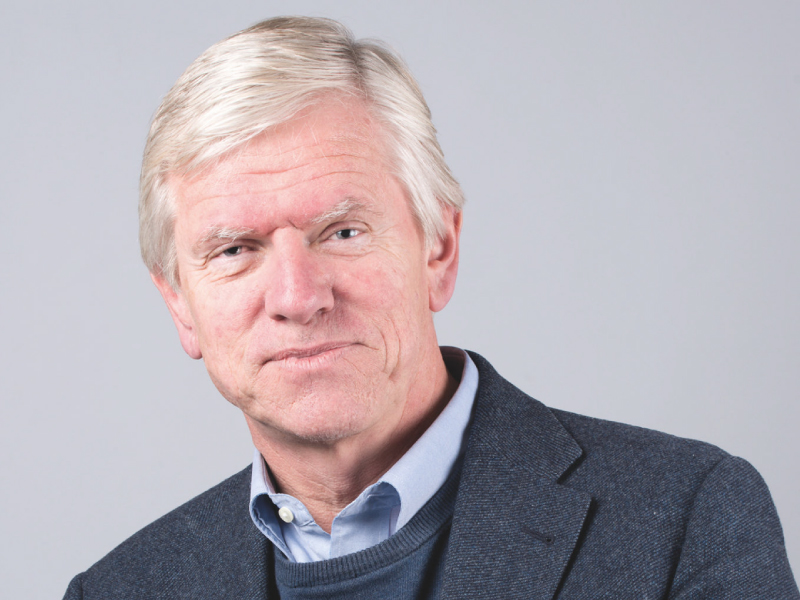Tore Laerdal shares lifesaving tools on a global stage

Tore Laerdal runs a company with the mission of "helping save lives."
For him, it's not just a motto. When he was 2, his father found him face-down in water, unconscious and cold. This near-death accident in 1954 had a profound influence on his family and became the catalyst for his lifetime of service as an adult.
The event also motivated his father Asmund S. Laerdal, then a toy manufacturer, to start producing the first lifelike manikins used for resuscitation training.
"The experience of very nearly losing me had a strong impact on him," Laerdal said. "It changed the course of the company. My father was determined to make a difference. I was always inspired by him."
That inspiration continues today as Laerdal serves as CEO for the company his father started, now called Laerdal Medical. It is based in Stavanger, Norway.
"It was so motivating to see how my father's legacy had established a trust with so many people," Laerdal said. "It allowed us to make a difference on a larger scale."
For his work, Laerdal, 68, is the winner of the American Heart Association's Ron Haddock International Impact Award, presented to an individual or group for outstanding contributions to the nonprofit's global efforts. The award will be presented during a livestream ceremony on October 27.
He is quick to deflect praise and points out that the company's team ethic and partnerships are why it is successful. He also said this collaborative attitude is one reason people around the world trust the company's products and training to prevent medical errors and simulate emergencies for health care providers.
Laerdal has an impressive collection of accolades internationally, in part because of his service in countries where help is needed most.
He is the executive director of the Laerdal Foundation, which has funded 2,000 research projects in acute medicine and global health. Another initiative, Laerdal Global Health, is a nonprofit he established to provide affordable and culturally sensitive training to help reduce maternal and newborn deaths.
One partnership with the International Confederation of Midwives, called the 50,000 Happy Birthdays program, trains health workers in Tanzania, Rwanda and Ethiopia on lifesaving techniques for mothers and babies. The mission is necessary, Laerdal said, because of a World Health Organization statistic that 99% of newborn deaths happen in low- to middle-income countries.
"It was really an 'aha' moment when I realized these babies in these particular cases could be saved so simply," he said. "It dawned on me that the potential to make a difference means saving lives at birth in low-resource countries."
In 2005, Laerdal Medical became the first American Heart Association Board Approved Strategic Alliance. Through this partnership, more than 12 million students have used specialized self-training stations to improve their skills in basic and advanced cardiac life support.
Other alliance projects include Hands-Only CPR training kiosks in nearly 30 U.S. airports, development of CPR Anytime kits, HeartCode eSimulation courses and expansion of the Resuscitation Quality Improvement (RQI) program.
"The partnership with the American Heart Association allowed us to align all the good initiatives and expand on our lifesaving efforts," he said.
For now, Laerdal Medical has been busy addressing the coronavirus pandemic, he said. Some contributions include developing an emergency ventilator and creating an online resource center with webinars to train health care workers assisting with COVID-19 patients.
Laerdal's goals are ambitious. An upcoming book, "One Million Lives," will chronicle his company and its commitment to saving that number of people annually by 2030.
Despite the company's success, he knows there's more work to do, and he hopes the family's legacy will continue with his three adult children who help run the business.
"I'm proud of the work my father started," he said. "I work every day to continue that so it will carry over to the next generation."





